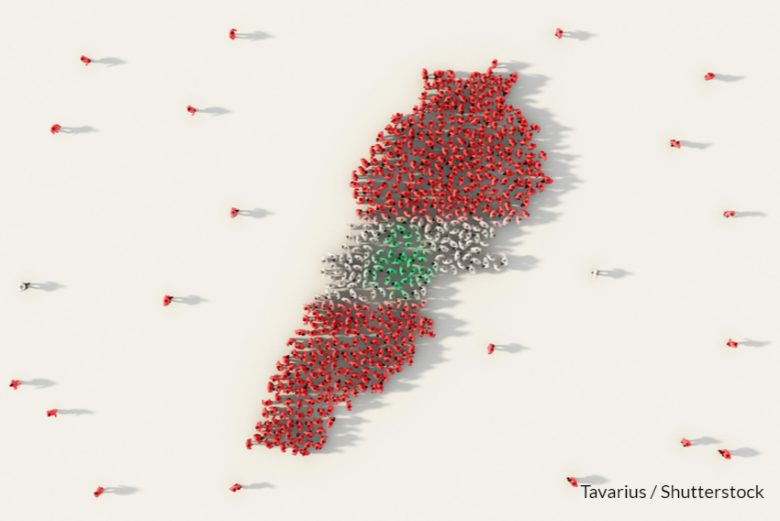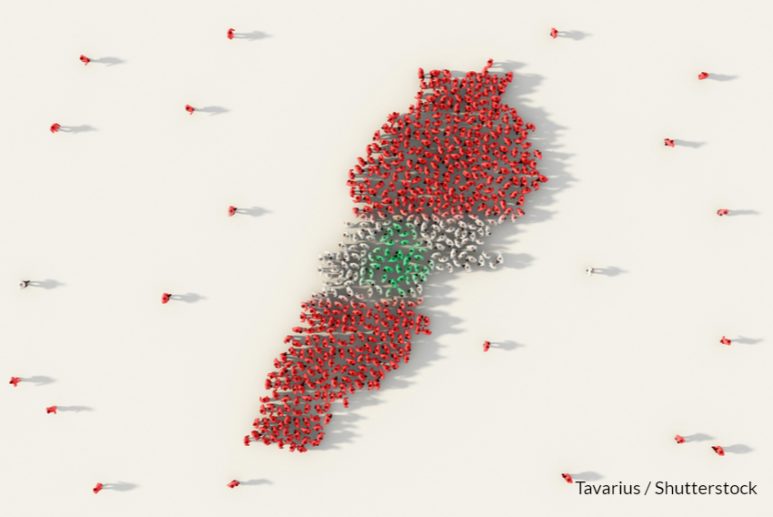Every month ‘Inclusive Media, Cohesive Society’ (IMeCS), a two-year project which aims to foster a media sector that contributes to a pluralistic, inclusive and cohesive society in Lebanon, publishes a media monitoring report on the state of hate speech in the country. IMeCS aims to ensure that media platforms provide a fair representation of all components of the Lebanese society; and to equip marginalised groups and hate speech victims with the necessary tools to combat hate speech and empower them to express themselves freely. IMeCS is led by Samir Kassir Foundation and in partnership with Media Diversity Institute and Thomson Reuters Foundation.
In the pursuit of a more inclusive and open media sphere, these reports are part of a series of studies which aim to monitor segments of problematic speech in various circles of socio-political influence, whether on social media or more traditional means of spreading information. Due to a variety of reasons, including but not restricted to deeply engrained sectarian tendencies and worsening economic hardship, the usage of bigoted and prejudiced rhetoric is recurrently instrumentalized in favour of an exclusionary and “othering” narrative. This reaffirms the necessity for highlighting these instances and bringing them to the fore in order to envision a more promising, ethical, and responsible space for users, producers, and commentators.
To read the monitoring reports from 2021 click on the buttons bellow:

January 2021: The Flames of Lebanese Discourse
Evidently, social media remains more accessible and malleable as seen on Twitter. Trends could be promoted if the necessary effort is put in to bring key conversations to the table. These conversations must be ones that foster acceptance, awareness, and dismantle harmful discourse before the flames of hate speech turn into another raging fire.
February 2021: “It’s Called a Crime”
Overall, the month of February can be characterized as one in which the rights-based discourse of the post-October 17 uprising was repressed in favor of an atmosphere of misogyny and geopolitical and sect-based conflict.
March 2021: The Invisibility of Marginalized Communities
The unfortunate reality remains that, with the exception of IWD this month, the rare times in which minorities in Lebanon do receive any kind of media spotlight, they tend to be met with apathy at best and inflammatory speech at worst.
April 2021: Lebanese Social Fabric in Tatters: Scapegoating Refugees Ensues
The crises make daily life difficult for a majority of the Lebanese. It is, therefore, crucial that issues related to marginalized groups be addressed in order to ensure that no community is left behind, or worse deliberately held back. The lengthy, multifaceted crises are stretching the Lebanese social fabric and bringing it closer to a breaking point; the impact that hate speech can have on said society could tip the balance one way or the other.
May 2021: The Silence of the Media
In Lebanon, xenophobia and anti-refugee sentiment found their way into the discussion bringing with them a resentment which exposes the fragile and uneasy post-civil war landscape, lacking in any real attempt at national reconciliation.
June 2021: The Long Road Ahead: Stemming the Tide of Hate Speech
The dire crisis that affects the daily life of all Lebanese citizens is reflected in the media spheres by an increase in hate speech and polarization. The space offered by the media spheres, and the dynamics that are played out across such spheres, act as a mirror of the society. More than ever, in a context of a general deterioration of the country where not all groups and individuals are equally affected by the crises, it is necessary to reaffirm the need for a safe media environment whereby marginalized communities and activists can express themselves freely without being stifled by the outstretched hand of hate speech.
July 2021: Fatal Discourse: The Systemization of Discriminatory Policies
Despite the positive changes brought by the independent media, the different marginalized communities in Lebanon have less space in which to express themselves. The manmade crisis brought by the warlords is causing an increased invisibilization of marginalized communities in favour of community discourses that propagate inflammatory rhetoric. While it is too early to know the long-term consequences of such dynamics, we can already foresee a resurgence of hate speech with negative impacts on society including discrimination, increased ostracism, and a rise of crimes against marginalized communities.
August 2021: The Lack of Accountability and The Two-Speed Justice
As the violence against marginalized communities is becoming increasingly normalized, and where the Lebanese authorities ignore or even instigate these practices, there is a need to promote a counter-discourse. Developing a more inclusive media landscape that gives voice to marginalized communities and systematically suppressing hate speech and other violence are cornerstones of developing an online environment free from hatred and violence.
September 2021: A Deepening Crisis and the Systemization of Hate Speech
In this context of crisis, the media must reflect the new expectations and aspirations of the population. Therefore, it would not be surprising, despite the attacks on the press, to see a media landscape shaped by more investigation, criticism, and accountability.
October 2021: When Online Violence Breaks Digital Barriers
The progress made towards integrating a certain marginalized community should not make us forget the difficult living conditions in which they live. More than ever, the various hate speech reports remind us of the extent to which they are victims of systematic online and actual violence.
November 2021: Status Quo And Political Violence
Far from being limited to inflammatory speech, online hate speech can take many forms and is characterized by a synergistic relationship with events in the Lebanese landscape, amplifying the intensity of the latter’s violence.
December 2021: The Double Plight of Refugees in Lebanon
As the media and journalists are increasingly repressed, marginalized communities become more isolated. Attacks on freedom of expression, increased hate speech, and the lack of representation of marginalized communities are intertwined in a vicious cycle.
January 2022: Hate and the Culture of Impunity
Despite the culture of impunity in the country, it is also worth noting the positive evolution of media outlets and organizations fighting against these dynamics and practices.
February 2022: Pre-election Online Violence?
As Lebanon sinks into a deepening economic crisis and the legislative elections approach, this type of investigation and monitoring by Lebanese media outlets and international organizations is more than necessary in a country where hate speech is on the rise and the culture of impunity prevails.
March 2022: A Global Decline in Freedom of the Press
While it is essential to speak out against the normalization of hate speech and the lack of inclusion of marginalized communities in the media, it is also important to highlight initiatives that promote a healthier and more inclusive media environment.
April 2022: One Month Before the Elections: The Calm Before the Storm
As emerging media outlets make their mark on the Lebanese media landscape, they have developed remarkable tools to follow the elections and include narratives beyond traditional discourse.
Photo Credits: Tavarius / Shutterstock

